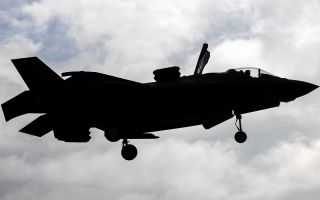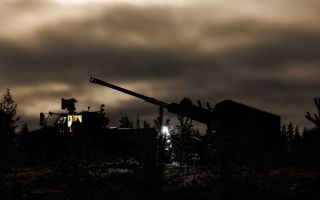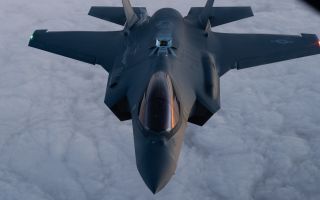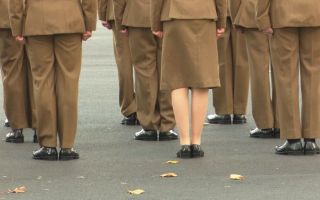
'Recruitment For The Forces Is Hard In An Economy Doing Well'

The Home Secretary has spoken about the difficulty of recruiting people to the Armed Forces 'in an economy which is doing well'.
Amber Rudd said keeping enough troops in the British forces is one of her 'primary concerns', but has admitted that maintaining the Army's strength of 82,000 personnel is a 'challenging and ambitious target'.
Ms Rudd, who chairs the Cabinet committee on implementing the Strategic Defence and Security Review 2015, which includes the Joint Force 2025 plans, was speaking at Parliament's Joint Committee on the National Security Strategy. She said:
"We know that the recruitment for reserves and maintaining the army at 82,000 - retention - is a challenging and ambitious target. That is one of my primary concerns."
"The Defence Secretary is completely aware of that. We have plans of what to do about that."
She added they were looking at how to "improve retention" and recruitment "in an economy which is doing well", and said:
"It’s not obvious necessarily how to attract the best people."
Miss Rudd pointed, however, to incentives to keep soldiers in the military, such as Help to Buy for the Armed Forces and family-friendly regulations. She said:
"We have put in place various initiatives like Help to Buy for the Armed forces so they can acquire property... More family-friendly regulations. That is one area where we do have concerns but we are taking action."
It comes with the Army now reportedly 4% below its required strength of 82,000, with recruitment short of the target set for last year.
An Army spokesman, meanwhile, said:
"The Army has enough people to perform all of its tasks to keep Britain safe. The Army continues to offer exciting opportunities that inspire the best of our young people. We have seen an increase in recruitment over the last year and we expect this trend to continue."
Miss Rudd added, however, that the fall in the pound following the Brexit vote could affect the government's plans to buy new ships, aircraft and other defence equipment unless the currency recovers.
Amber Rudd said ministers have "hedged" for a drop in sterling for two years but admitted if it does not recover from an 18% drop against the dollar and 10% against the euro after that period, planned defence investment could go over budget.
She spoke as parliamentarians raised concerns over the government's ability to deliver on its proposals for a new Joint Force 2025, which includes plans to buy new F-35 Lightning aircraft, logistics ships, as well as a host of other investment commitments.
She said:
"The Defence Secretary will reassure us that they have hedged for a period and you would expect them to, so it won't impact immediately, and of course we don't know where the currency will be in two years time."
"But it is something that we are very aware of and could impact after two years if it's in the same place, if we have a situation where our purchasing power is down by 15%, it will have an impact.
"But at the moment the situation is that it is hedged for a period."
Asked how long the "hedge" was for, she said: "For two years." She added:
"None of us know what the currency will be like after two years but... it could impact on our ability to purchase given the certain amount of money that's been committed to this and there might have to be conversations with the Chancellor at that stage."









